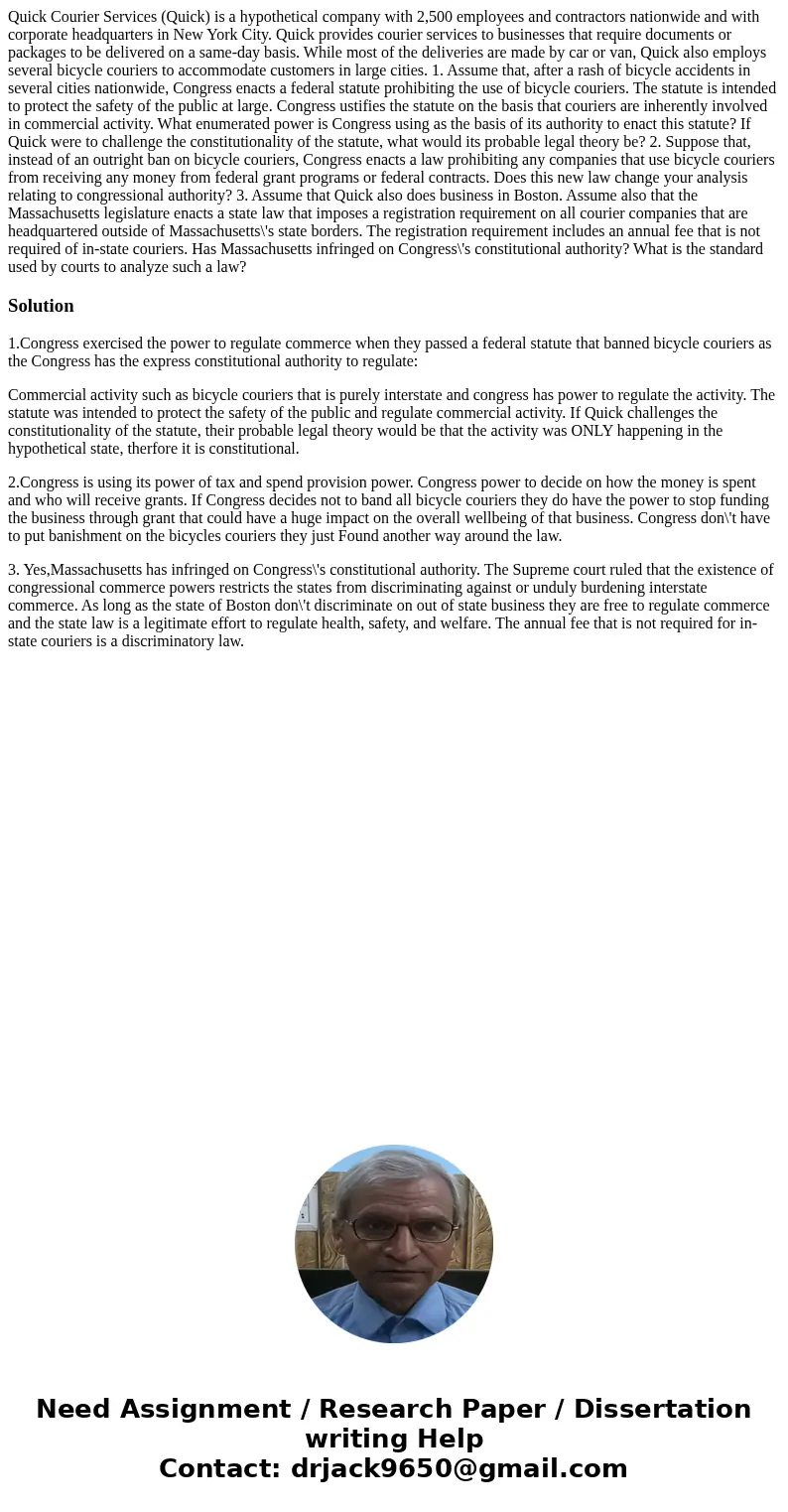Quick Courier Services (Quick) is a hypothetical company with 2,500 employees and contractors nationwide and with corporate headquarters in New York City. Quick provides courier services to businesses that require documents or packages to be delivered on a same-day basis. While most of the deliveries are made by car or van, Quick also employs several bicycle couriers to accommodate customers in large cities. 1. Assume that, after a rash of bicycle accidents in several cities nationwide, Congress enacts a federal statute prohibiting the use of bicycle couriers. The statute is intended to protect the safety of the public at large. Congress ustifies the statute on the basis that couriers are inherently involved in commercial activity. What enumerated power is Congress using as the basis of its authority to enact this statute? If Quick were to challenge the constitutionality of the statute, what would its probable legal theory be? 2. Suppose that, instead of an outright ban on bicycle couriers, Congress enacts a law prohibiting any companies that use bicycle couriers from receiving any money from federal grant programs or federal contracts. Does this new law change your analysis relating to congressional authority? 3. Assume that Quick also does business in Boston. Assume also that the Massachusetts legislature enacts a state law that imposes a registration requirement on all courier companies that are headquartered outside of Massachusetts\'s state borders. The registration requirement includes an annual fee that is not required of in-state couriers. Has Massachusetts infringed on Congress\'s constitutional authority? What is the standard used by courts to analyze such a law?
1.Congress exercised the power to regulate commerce when they passed a federal statute that banned bicycle couriers as the Congress has the express constitutional authority to regulate:
Commercial activity such as bicycle couriers that is purely interstate and congress has power to regulate the activity. The statute was intended to protect the safety of the public and regulate commercial activity. If Quick challenges the constitutionality of the statute, their probable legal theory would be that the activity was ONLY happening in the hypothetical state, therfore it is constitutional.
2.Congress is using its power of tax and spend provision power. Congress power to decide on how the money is spent and who will receive grants. If Congress decides not to band all bicycle couriers they do have the power to stop funding the business through grant that could have a huge impact on the overall wellbeing of that business. Congress don\'t have to put banishment on the bicycles couriers they just Found another way around the law.
3. Yes,Massachusetts has infringed on Congress\'s constitutional authority. The Supreme court ruled that the existence of congressional commerce powers restricts the states from discriminating against or unduly burdening interstate commerce. As long as the state of Boston don\'t discriminate on out of state business they are free to regulate commerce and the state law is a legitimate effort to regulate health, safety, and welfare. The annual fee that is not required for in-state couriers is a discriminatory law.

 Homework Sourse
Homework Sourse